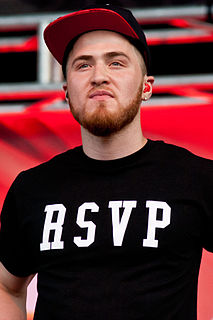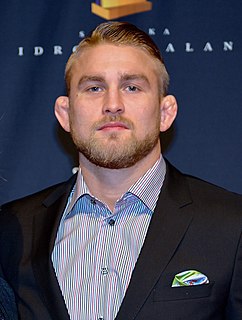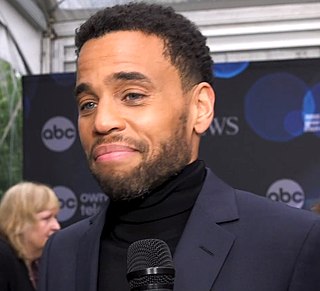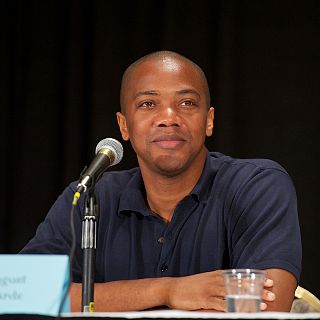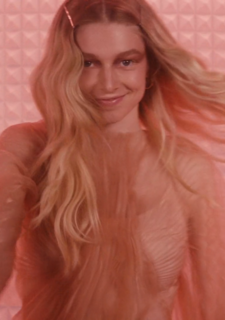A Quote by Rumaan Alam
I do think that I have a sensitivity to the depictions of maybe all minorities in literature. And I think that the experience of people who look like me is so rarely captured in big, mainstream American fiction that you tend to sort of empathize with any character of color who pops up.
Related Quotes
You get pigeonholed by what you sort of look like. And I don't mean this in a self-deprecating way. I'm grateful for any opportunity to act. But I think that if you're not classically attractive or mainstream attractive, especially as you get older, there's only like three jobs that people think you do. Like, "police officer who may be gay." District attorney is a big one. Lawyer. Doctor.
I was born in the United States, I'm proud to be an American, I'm an American first. But obviously, I'm a Chinese-American. And growing up, my family, my parents, and I think rightly so didn't put us in Chinatown, didn't put us with our other ethnic group, but put us in mainstream America. They're thinking was that will help us assimilate into the mainstream and be a part of it. And it did. It certainly gave me tolerance of other people, of other races, of other ethnicities and I think that's helped make me a better person.
That's another great thing about Think Like a Man picture. The cast is predominantly African-American, but color is never really an issue in the film. It's rarely brought up since, at the end of the day, these guys are going through universal relationship issues that anybody can relate to. So, while the characters like "The non-committer," "The Player," and "The Dreamer" might be recognizable as common stereotypes, color isn't involved.
I read something in the paper that really confused me the other day. It said that 80 percent of the people in New York are minorities. Shouldn't you not call them minorities when they get to be 80 percent of the population? That's a very white attitude, don't you think? I mean, you could take a white guy to Africa and he'd be like 'Look at all the minorities around here! I'm the only majority.'
You look at science fiction and look how often it talks about being alien, being alienated about the other. Look at the number of blue people - 'Avatar,' I'm looking at you. And it is now easier to find people of color in science-fiction literature and media, but the issues of representation are still really, really troubling.
When you look at the current state of reality TV, at least on the mainstream level, the shows that tend to be more successful have been around for a while. It's difficult today to show the audience something they haven't seen before, and I think that's what tends to be the secret to any great, big reality hit.
I've got a funny old face. Someone described it once, and I think they were being kind, as character. But I know what they mean! I've never been that conventional. I suppose maybe it means that my face can look different in different lights, so I just try and sort of keep it simple when I'm going out, to still look like me.
I am interested in Scripture and theology. This is an interest that I can assume I would share with a pastor, so that makes me a little bit prone to use that kind of character, perhaps, just at the moment. Then there is also the fact that, having been a church member for many years, I am very aware of how much pastors enrich people's experience, people for whom they are significant. I know that it's a kind of custom of American literature and culture to slang them. I don't think there is any reason why that needs to be persisted in.


